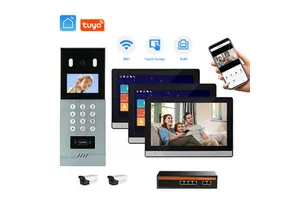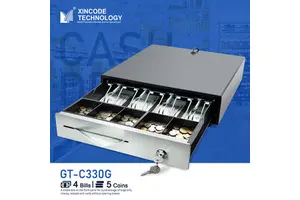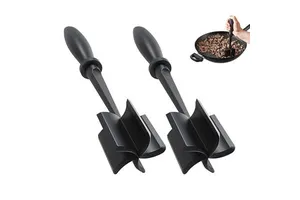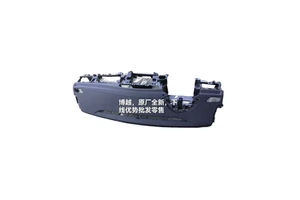Abs Granules Pellet Virgin Natural ABS AE8000 for Extrusion Abs Plastic Raw Material Price Per kg
## Unlocking Value & Performance: Virgin Natural ABS Granules (AE8000) for Extrusion - Your Price Per kg Guide
In the demanding world of plastic manufacturing, selecting the right raw material is critical for success. When your process involves **extrusion**, premium quality **ABS plastic** in granular or pellet form becomes essential. For those seeking high-purity feedstock without compromise, **Virgin Natural ABS Grade AE8000** stands out as an excellent choice. Let's delve into why this specific grade deserves attention and break down what determines its crucial metric: the **price per kilogram**.
### What is ABS Granules/Pellets AE8000?
* **Material Core:** It's Acrylonitrile Butadiene Styrene (ABS), a terpolymer renowned for its balanced profile – tough impact resistance, rigidity, good dimensional stability, plus moderate heat resistance and ease of finishing/painting.
* **FormFactor Advantage:** Manufactured as uniform **granules or pellets**, AE8000 is optimally shaped for consistent melting and smooth feeding into extruders. This ensures uniform flow, minimizes bridging issues, and promotes efficient processing.
* **Purity Matters ("Virgin Natural"):**
* ***Virgin*** signifies it's produced directly from monomers, not recycled streams. This guarantees minimal contamination and consistent molecular structure. No unexpected impurities mean predictable mechanical properties and color stability. Crucial for critical applications.
* ***Natural*** indicates the absence of added pigments or masterbatches during compounding. Its inherent color is typically a clean, light cream or off-white base. This offers maximum flexibility downstream – you can color it precisely to any shade required *after* extrusion using concentrated colorants or masterbatches added during your own production step. It provides a "blank canvas."
* **Engineered for Extrusion:** The AE8000 designation often points to a formulation specifically optimized for extrusion processes (like profiling, tubing, sheets). Its melt rheology (flow characteristics under heat and pressure) is tailored to fill complex die shapes evenly and maintain desired surface finish without excessive die drool or shark skin effects common with poorly adapted grades.
### Why Choose Virgin Natural ABS AE8000 for Extrusion?
1. **Predictable Quality & Performance:** Consistent material translates directly to consistent product dimensions, mechanical strength (tensile, flexural, Izod impact), and thermal behavior in the final extruded profile. Reject rates drop significantly.
2. **Superior Surface Aesthetics:** Starting with pure, unpigmented resin allows for the highest quality surface finish post-extrusion. You control the exact color addition, leading to vibrant, uniform colors or sophisticated effects impossible with pre-colored materials limiting customization. Minimal gel particles or black specks ensure smooth surfaces.
3. **Processing Efficiency:** Designed for extruders, it yields stable melt pressures, good bubble collapse in profiles, and reduced scrap rates due to better line control. Downtime for purging color changes is eliminated if you switch between natural batches.
4. **Design Freedom:** Being unfilled and unreinforced provides the base properties designers expect from classic ABS. Need flame retardancy or increased stiffness later? Special additives can be incorporated *into* the extruded stock made from this base resin more effectively than starting with a pre-loaded compound.
5. **Cost vs. Performance Sweet Spot:** While specialist compounds exist, standard virgin natural grades like AE8000 offer the best balance of price and core performance for many general extrusion applications where specific modifications aren't needed upfront.
### Decoding the Price Per Kilogram (¥/kg or $/kg)
The headline question always revolves around **"What's the cost?"** However, providing a single fixed number is misleading. The **price per kg of Virgin Natural ABS Granules AE8000** fluctuates dynamically based on several interconnected factors:
| Factor | Impact on Price | Explanation |
| :--- | :--- | :--- |
| **Global Energy Costs** | High Volatility | Oil & gas feedstock prices heavily influence petrochemical chain costs. Crude oil spikes immediately push ABS production costs higher globally. |
| **Monomer Market Rates (ACN, Butadiene, Styrene)** | Direct Correlation | These three building blocks account for ~70% of ABS production cost. Their spot market prices set fundamental floors/ceilings. Shortages cause sharp increases. |
| **Supply & Demand Imbalances** | Real-Time Swings | Regional production capacity versus local consumption levels create surpluses or shortages affecting spot pricing daily. Peak season demand surges also impact prices locally. |
| **Logistics & Freight** | Significant Adder | Costs include factory gate pickup, multimodal transport (truck/rail/sea container), insurance, customs duties (international), terminal handling fees, and finally delivery to your facility door. Long distances increase CIF (Cost, Insurance, Freight) substantially. |
| **Exchange Rates** | Currency Risk Premium | For international buyers paying in local currency against USD-denominated invoices, forex volatility adds uncertainty requiring hedging strategies, contributing to perceived price changes even if producer prices stay flat. |
| **Quantity Discounts (Economy of Scale)** | Tiered Pricing Model | Buying full truckloads (FTL - e.g., 20MT bulk bags) always yields lower €/kg than smaller LTL (Less Than Truckload) shipments palletized in boxes or small bags due to distribution efficiency. Bulk liquid bulk discounts apply where feasible. |
| **Market Conditions & Speculations**| Psychological Effects | Traders' expectations regarding future availability can temporarily inflate prices beyond pure fundamental drivers during perceived tightness periods. Conversely, panic selling may occur anticipating oversupply. |
| **Regional Differences**| Local Premium/Discount | Asia manufacturers might offer lower base prices but add high freight margins for Europe/Americas vs. regional producers avoiding long hauls but operating at higher local energy rates affecting their baseline quote. |
#### Illustrative Range (as of late 2023/early 2024 - *Always confirm current quotes!*):
* **Approximate Indicative Range:** **$1.80 - $2.60 USD per kilogram** (or €1.65 - €2.40 EUR/kg depending on exchange rate).
* Actual realized prices depend heavily on your specific circumstances within the above factors.
* **Example Breakdown:** A manufacturer ordering a full 20ft container (~20MT net weight) direct from a large producer in East Asia might net close to the lower end after negotiations and absorption of freight parity clauses. Conversely, a European converter buying just 500kg via a distributor with multiple handling steps could easily pay towards the high end. Small trial batches will command even higher per kg premiums.
### Maximizing Value When Sourcing ABS AE8000
To secure the best possible **price per kg** without sacrificying quality:
1. **Request Quotations (RFQ):** Contact multiple reputable suppliers/distributors simultaneously. Clearly specify exact quantity needed, target delivery location (incoterm basis: FOB, CIF, DDP), packaging preference, and certification requirements (SGS test reports verifying virgin status etc.).
2. **Consider Bulk Purchasing:** If storage allows, opt for larger volume orders like full gaylords or containers to benefit from economies of scale. Analyze inventory carrying costs versus purchase savings carefully.
3. **Build Relationships:** Long-term contracts with key suppliers can provide price stability and priority allocation during tight market periods. Loyalty matters!
4. **Track Market Indexes:** Follow relevant benchmarks like Montriex Petrochemical’s ABS index or regional published assessments to understand trend directions when negotiating. Avoid buying at cyclical peaks unless absolutely necessary.
5. **Optimize Logistics:** Work with freight forwarders specializing in polymer cargo to find cost-effective routes and consolidation opportunities if applicable. Minimize demurrage charges at ports by ensuring timely pickup arrangements.
6. **Verify Quality Upfront:** Never compromise solely on price. Ensure samples meet your required specifications before placing large orders. Test melt flow index (MFI), impact strength, color consistency, and absence of contaminants. Non-conforming material costs far exceed marginal savings on price.
### Final Thoughts
**Virgin Natural ABS Granules AE8000** represents a foundational pillar for high-quality extrusion operations requiring reliability





